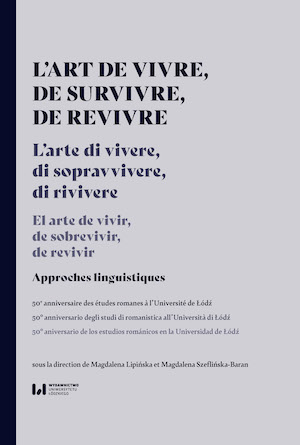Une introduction à l'analyse des verbes polonais de perception auditive słyszeć et słuchać et leurs traductions en français
An introduction to the analysis of Polish auditory verbs słyszeć and słuchać and their translations into French
Author(s): Dorota Śliwa
Subject(s): Language studies, Language and Literature Studies, Foreign languages learning, Philology
Published by: Wydawnictwo Uniwersytetu Łódzkiego
Keywords: verbs of auditory perception; Polish prefixes; perfective and imperfective; polysemy
Summary/Abstract: In recent decades, we have witnessed an increase in the number of research related to the verbal expressions of sensory perceptions in different languages. These are often semantic and syntactic analyzes of predicates within the framework of a sentence. The present study provides an introduction to the contrastive analysis of Polish and French verbs of auditory perception, taking into account the link with the intellectual activity of the perceiving subject and the communication situation. The semantic description of verbs is divided according to cognitive criteria into verbs of passive perception (słyszeć - entendre) and active (słuchać - écouter) and restricted to the category of the object of perception which is the human voice. The contrastive analysis shows the different prefixes as well as perfective and imperfective verb forms in Polish that are able to express aspectual and modal nuances, which is lacking in French. In the translated texts, they are expressed by adverbs or other verbs. The polysemy of verbs is linked to intellectual activity and the position of the perceiving subject in relation to the speaker. Thus the ‘understand’ component appears for passive hearing verbs; for verbs of active hearing the polysemy is generated on the cause-consequence relation: ‘obey’ when the perceiver is in a position of inferiority, ‘fulfil’ when he is in a position of superiority.
- Page Range: 289-299
- Page Count: 12
- Publication Year: 2022
- Language: French
- Content File-PDF

